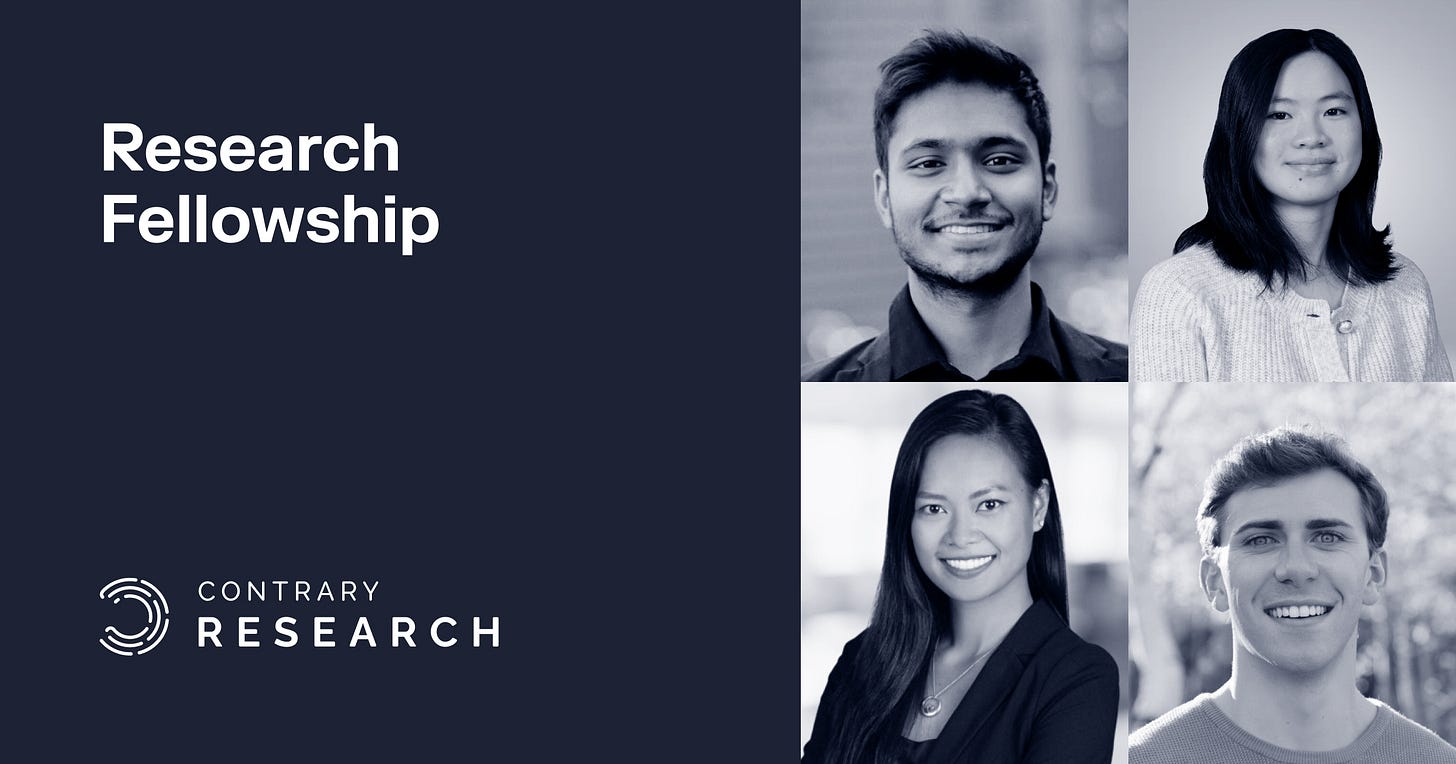Research Rundown
The rumors of the death of fintech have been greatly exaggerated. While some categories within fintech have struggled, or even imploded, others have produced multiple $100 billion companies. Evaluating the state of fintech requires an evaluation of individual categories and how they’re evolving. First up? Buy Now, Pay Later (BNPL). In our latest deep dive we unpack the rise, and fall, and normalization of BNPL to gain insight into the broader implications for fintech.
What if the next major legal innovation came not from lawyers, but from an AI startup built by ex‑Big‑Law devs and DeepMind researchers — that’s Harvey. To find out more, read our memo here.
N26 isn’t building a bank—it’s building an operating system for modern financial life. Read our memo here for everything you need to know.
The next platform war won’t be screens or chat—it’ll be voice, and Sesame AI is coming for it. We break it down in our memo here.
Trump’s AI Action Plan sets US strategy across innovation, infrastructure, and diplomacy. The plan calls for accelerating private-sector AI adoption, building energy and semiconductor infrastructure, and exporting US AI standards globally. Key policies include open-source promotion, grid expansion, export controls, and DoD AI deployment, with a focus on countering China’s AI influence.
OpenAI to launch GPT-5 in August with integrated o-series models. The update will include standard, mini, and nano versions, all available via API, with broader ChatGPT access for larger models. GPT-5 unifies OpenAI’s reasoning capabilities and may trigger AGI-related contractual shifts with Microsoft, though it won’t meet AGI thresholds at launch.
Study measures generative AI’s occupational impact using workplace conversations. Analyzing 200K Microsoft Bing Copilot interactions, researchers assign AI applicability scores across occupations, finding highest applicability in computer/math, office support, and sales roles. AI most often assists with writing, info gathering, advising; task success correlates with wage and education levels
Hadrian scales AI-powered factories to rebuild US industrial base. In a talk this week in DC, CEO Chris Power explains how the company grew 10x in 2024 with its second LA factory and will open a 4x larger Arizona site by year-end, adding 350+ jobs. Its Opus platform boosts factory uptime 4x and workforce productivity 10x, upskilling nontraditional workers in 30 days.
GLP-1 drugs show wide-ranging health benefits beyond weight loss. Large-scale studies link GLP-1s to reduced risk of heart disease, cancer, addiction, migraines, and Alzheimer’s, even among non-obese users. Researchers suggest the effects stem from systemic inflammation reduction and neural modulation, prompting drugmakers to pursue specialized versions for cognitive and organ health.
MediaTek wins Meta's 2nm ASIC order, targets 2027 mass production. The chip, codenamed Arke, will focus on inference and follow Meta’s Iris launch in 2025. Originally Broadcom-led, Meta’s roadmap now splits: Arke for inference in 2027, Olympus for training in 2028. MediaTek adds Meta as its second major CSP client after Google.
Essay proposes state-backed “charter research organizations” to fund overlooked science. Thomas Lehrman and George Gilder argue that states should mimic school choice by offering tax-credit-funded microgrants to researchers bypassed by NIH and NSF. Citing Crispr’s origins, they urge Congress to divert 5–10% of federal research funds to states and highlight full R&D deductibility in the Big Beautiful Bill Act as a model reform.
AI agent startups scale fast with $100M+ ARR and 127x valuations. Data from CB Insights shows companies like Cursor ($500M ARR) and Mercor are commercializing rapidly, with 42% of startups already deployed. Customer support agents command top multiples, and some now outperform Big Tech in revenue per employee. Market projected to hit $13B by end of 2025.
Fusion startups raise $2.64B in past year, highest since 2022. FIA’s 2025 report shows total sector funding at $9.77B across 53 companies, up 5x since 2021. Major rounds included $900M for Pacific Fusion and $425M for Helion. Median funding need for pilot plants is $700M; 84% expect grid deployment by 2040.
Poolside bets on reinforcement learning to build AGI through code. The company is training an RL-powered model optimized for software development, using millions of sandboxed and real-world coding environments. Cursor-style agents generate self-play data at scale, aiming to surpass general models through execution feedback, rich abstractions, and continual iteration.
At Contrary Research, we’ve built the best starting place to understand private tech companies. We can't do it alone, nor would we want to. We focus on bringing together a variety of different perspectives.
That's why applications are open for our Research Fellowship. In the past, we've worked with software engineers, product managers, investors, and more. If you're interested in researching and writing about tech companies, apply here!











